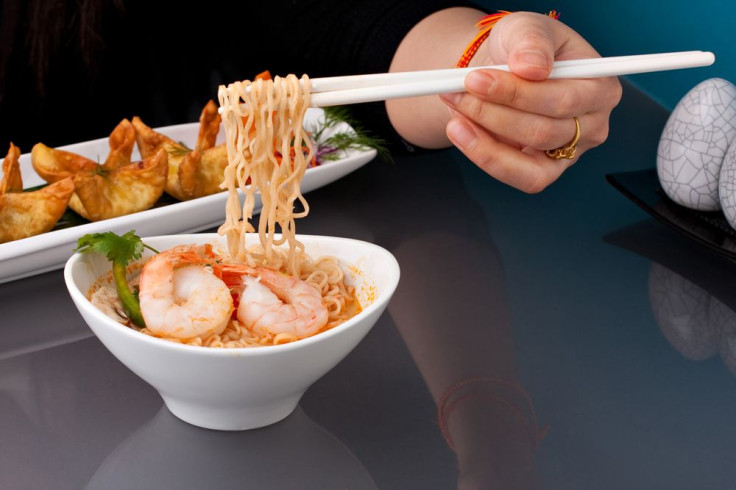Opium-Laced Noodles Sold In Chinese Restaurant Don't Contain Same Poppy Seeds As Your Bagel

A business owner in China had an interesting idea for how he could keep customers coming back. The noodle shop owner from the Shaanxi province in Northwest China, named Zhang, admitted to police that he had been lacing his product with opium to not only add a little favor, but also to get his customers addicted to his unique noodle recipe. Similar “opium-laced noodle” cases were reported in China around 2010 and 2012, CNN reported.
Zhang told a Chinese drug enforcement agency that he purchased just under 4.4 pounds of poppy buds for around $98 back in August. He began crushing the addictive substance up into a fine white powder before adding it into the noodles along with other seasoning. Opium is derived from the poppy seeds found in these buds. Although poppy seeds had been used in traditional Chinese dishes in the past, this practice has been outlawed due to the drug’s addictiveness.
Authorities discovered Zhang’s “opium-laced noodles” scam after 26-year-old Liu Juyou was pulled over and administered a drug test that came up positive for opium. Juyou was detained for 15 days on drug abuse charges while denying that he had ever come in contact with the illegal substance. Suspecting that opium had made its way into his system via an earlier meal of the day of his arrest, Juyou recruited his family to order the same meal from Zhang’s noodle shop. Juyou was released after his family members also tested positive for opium.
Chinese media outlets contend that even though the noodles contained enough opium to build up in a customer’s system and result in a positive drug test, addiction was only possible after regular consumption over an extended period of time. The morphine alkaloid found in opium is found in the production of a more addictive and potent illicit drug that is commonly found in America, known as heroin.
Many people worry that if they consume a poppy seed bagel right before a drug screening they will test positive. According to the U.S. Anti-Doping Agency, there is some truth to their apprehension. After it is extracted from the seed pod of the opium poppy, opium is made up of around 12 percent morphine, codeine, and other non-narcotic alkaloids. These seed pods also contain poppy seeds that do not originally hold morphine but are often coated by or absorb opium extract during harvesting. While over 90 percent of the opium is removed from seeds during processing, some may still remain by the time it is added to the foods we consume, such as poppy seed bagels.



























